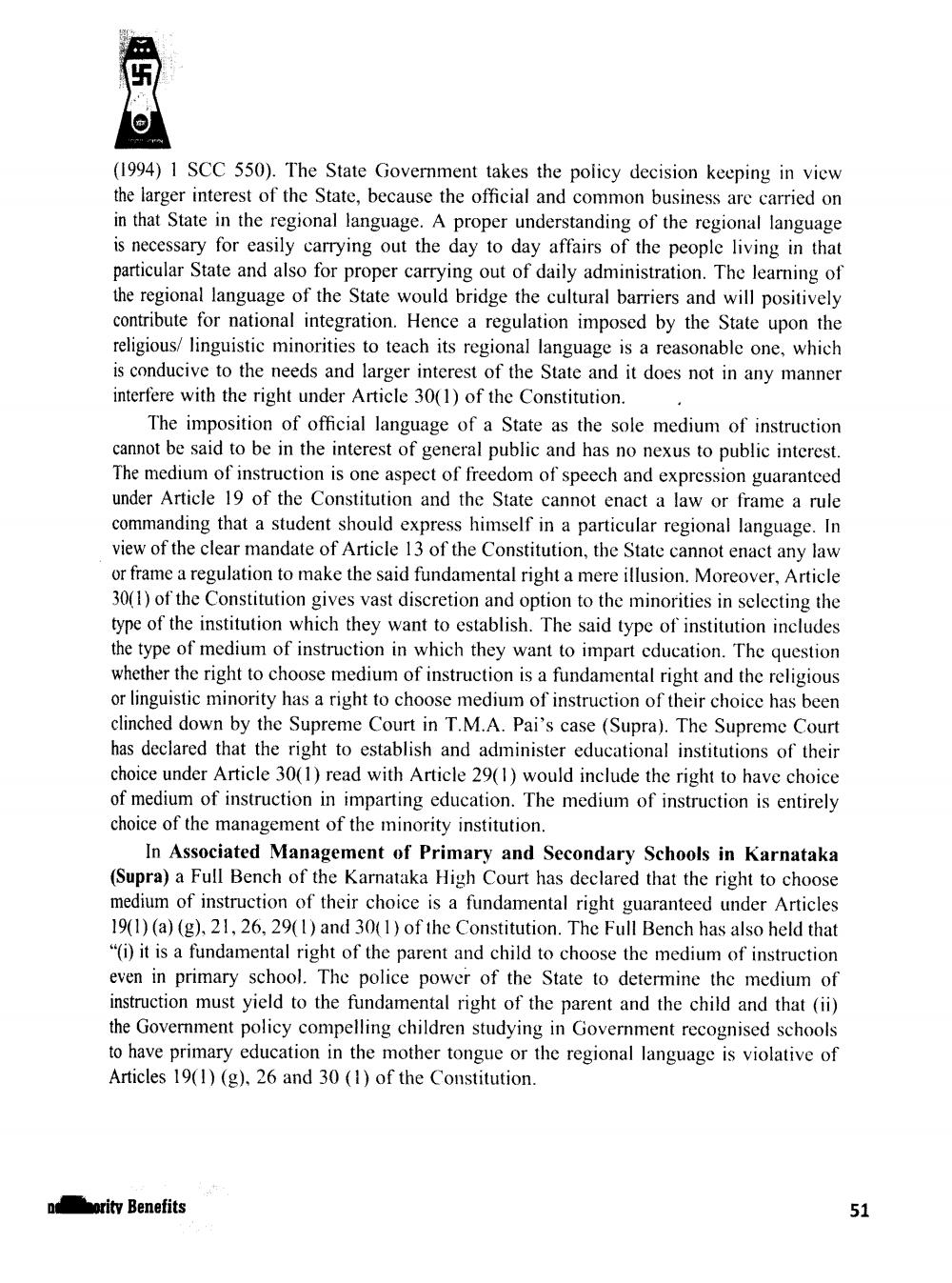________________
50
(1994) 1 SCC 550). The State Government takes the policy decision keeping in view the larger interest of the State, because the official and common business are carried on in that State in the regional language. A proper understanding of the regional language is necessary for easily carrying out the day to day affairs of the people living in that particular State and also for proper carrying out of daily administration. The learning of the regional language of the State would bridge the cultural barriers and will positively contribute for national integration. Hence a regulation imposed by the State upon the religious/ linguistic minorities to teach its regional language is a reasonable one, which is conducive to the needs and larger interest of the State and it does not in any manner interfere with the right under Article 30(1) of the Constitution.
The imposition of official language of a State as the sole medium of instruction. cannot be said to be in the interest of general public and has no nexus to public interest. The medium of instruction is one aspect of freedom of speech and expression guaranteed under Article 19 of the Constitution and the State cannot enact a law or frame a rule commanding that a student should express himself in a particular regional language. In view of the clear mandate of Article 13 of the Constitution, the State cannot enact any law. or frame a regulation to make the said fundamental right a mere illusion. Moreover, Article 30(1) of the Constitution gives vast discretion and option to the minorities in selecting the type of the institution which they want to establish. The said type of institution includes the type of medium of instruction in which they want to impart education. The question whether the right to choose medium of instruction is a fundamental right and the religious or linguistic minority has a right to choose medium of instruction of their choice has been clinched down by the Supreme Court in T.M.A. Pai's case (Supra). The Supreme Court has declared that the right to establish and administer educational institutions of their choice under Article 30(1) read with Article 29(1) would include the right to have choice of medium of instruction in imparting education. The medium of instruction is entirely choice of the management of the minority institution.
In Associated Management of Primary and Secondary Schools in Karnataka (Supra) a Full Bench of the Karnataka High Court has declared that the right to choose medium of instruction of their choice is a fundamental right guaranteed under Articles 19(1)(a) (g), 21, 26, 29(1) and 30(1) of the Constitution. The Full Bench has also held that "(i) it is a fundamental right of the parent and child to choose the medium of instruction even in primary school. The police power of the State to determine the medium of instruction must yield to the fundamental right of the parent and the child and that (ii) the Government policy compelling children studying in Government recognised schools to have primary education in the mother tongue or the regional language is violative of Articles 19(1)(g), 26 and 30 (1) of the Constitution.
nority Benefits
51




